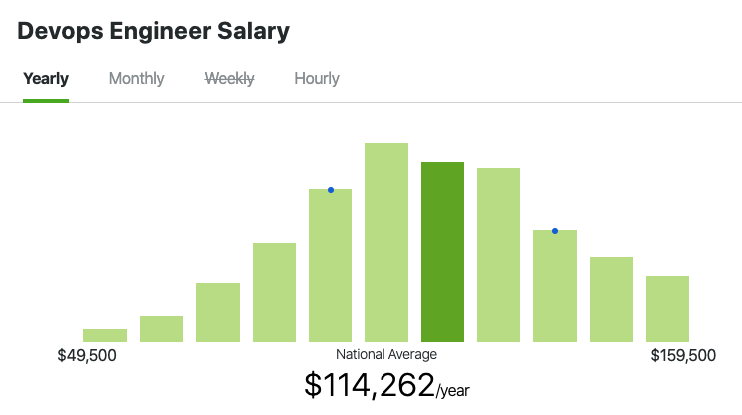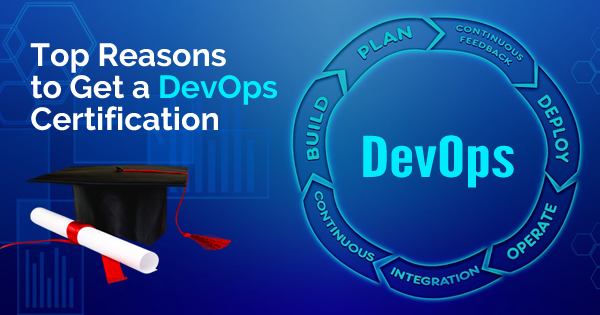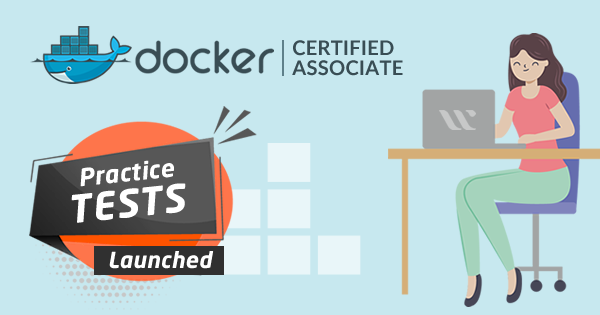Almost everyone in the field of application and software development in the present times is aware of DevOps. The importance of DevOps certification is undeniable for many reasons. The following discussion aims exactly at finding the reasons to get a DevOps certification. However, the reasons would reflect on important factors other than the benefits of industrial recognition.
Therefore, the discussion would also focus on the popularity of DevOps and then reflect on the importance of DevOps. Subsequently, the discussion would elaborate DevOps certification benefits for providing a better explanation of reasons to achieve certification in DevOps. So, let’s start with the DevOps introduction.
Enroll Now: DevOps Certification Training Courses
What is DevOps?
First of all, it is important to know about DevOps before proceeding towards the significance of DevOps certification. DevOps appears as conjugation of Development and Operations to the eyes of a layman. However, the definition of DevOps is not quite clear yet. Many assume DevOps as a set of practices, while many assumptions paint it as a methodology.
On the other hand, DevOps is actually a movement or a culture change or a paradigm shift in application and software development. It describes the precedents for setting up an agile relationship between the development and IT operations teams.
The primary goal of DevOps aims at modifying and improving the relationship through advocacy for better communication and collaboration between the two teams. The DevOps culture helps in ensuring the optimal functioning of software with the least problems. The culture aims at fostering a willingness to work together and sharing.
Most important of all, the DevOps culture helps in creating a faster and stable workflow across development and IT operations. If you are wondering “why DevOps,” then look at its popularity. DevOps implementations have increased considerably over the last few years. In 2016, almost 66% of organizations worldwide had adopted DevOps. In 2017, the share of organizations adopting DevOps increased to 74%.

In this article, let’s have a quick DevOps introduction to learn the basics.
Benefits of Getting a DevOps Certification
The next crucial factor in understanding the reasons for getting DevOps certification is the benefits of DevOps. First of all, DevOps ensures smaller development cycles along with faster innovation. Joint development and operations initiatives help in improving the usability of a team’s applications faster. Therefore, innovation plays a key role in companies using DevOps for outsmarting their competition.
DevOps also helps in considerable reductions in implementation failure. The primary reason for implementation failure is evident in programming defects. Shorter development lifecycles in DevOps help in the increasing frequency of code versions. As a result, it is easier to detect code and defects. So, implementation failures decrease considerably with the use of agile programming principles that focus on collaboration and standard programming.
Another potential reason to solve doubts on “why DevOps” is the facility for improved communication and cooperation. The foundation of common grounds for interaction between development and IT operations teams is commendable in DevOps. As a result, both teams could experiment and innovate very effectively. Furthermore, coordination of key performance indicators between both teams leaves limited scope for error in development. Another advantage of DevOps is the improved transparency of the process workflow.
What job role you will get for Devops certification?
Some common job roles that you may be qualified for a DevOps certification include:
- DevOps Engineer: This role involves designing and implementing a company’s DevOps strategy, including tools, processes, and workflows.
- Release Manager: This role involves coordinating the release of software and infrastructure changes across an organization.
- Site Reliability Engineer (SRE): This role involves ensuring that a company’s systems are reliable, scalable, and efficient.
- Cloud Architect: This role involves designing and implementing cloud-based solutions for an organization.
- System Administrator: This role involves managing and maintaining an organization’s computer systems and networks.
It’s worth noting that the specific job roles and responsibilities associated with a DevOps certification will vary depending on the company and the specific needs of the organization.
Reasons for Getting Certified in DevOps
There are a number of reasons to get a DevOps certification for IT professionals. Therefore, this discussion aims at presenting some of the notable ones among them for fostering your interest in DevOps certification.
Learning about the Whole SDLC
First of all, getting aDevOps certification helps in learning about the intricacies of the Software Development Life Cycle (SDLC). Familiarity with the DevOps concepts helps in obtaining a detailed idea about the different stages in SDLC.
Certified professionals learn about source code management, containerization, continuous integration, continuous monitoring, configuration management, and continuous testing. Developers can know all about the processes in testing and production, and the same happens for the case of IT operations teams as well.
Benefits for Organizations
The DevOps certification benefits also apply to an organization. Employees with DevOps certification could provide better productivity for an organization. Better cooperation, interaction, and collaboration between operations and development groups fosters a favorable organizational culture.
Furthermore, the shorter development lifecycles offer another boost for an organization’s productivity. For example, software development projects taking 3 to 6 months previously can finish within a few hours with DevOps.
Better Job Opportunities
The benefits of DevOps certification also indicate the facility of additional job opportunities. DevOps is comparatively new in the market, especially in the IT industry. Certification in DevOps ensures access to multiple job opportunities with businesses looking for DevOps experts. The demand for DevOps professionals is quite high as compared to the availability of professionals.
Therefore, you can capitalize on this opportunity to avail of top job positions at notable organizations. The certification proves the skills of certificate holders in DevOps, thereby guaranteeing better job alternatives upon finding an opportunity.
Must Read: 10 Must Have Skills for DevOps Professionals
Better Service Quality and Customer Satisfaction
The improvement in service quality and customer satisfaction are also prominent reasons to obtain DevOps certification. Service quality depends on the skill of experts in DevOps. Service quality depends a lot on a lack of errors and potential for emerging errors in the development process.
DevOps certified professionals can bring an error back to a free state in a particular timeline, thereby offering quality services. Subsequently, better service quality ensures better customer satisfaction. In addition, DevOps offers an ideal platform for compliance with emerging changes in the field of technology. Therefore, maintaining parallels with growing changes in technology help in addressing changes in the demands of clients.
Multiple Options for Reinventing Your Career
DevOps certification also helps in improving your chances of finding a new career path. The diverse job roles available for DevOps certified professionals include individuals in IT development or IT operations and service management. In addition, you can take on roles such as infrastructure architects, automation architects, DevOps engineers, and DevOps consultants. Practically, there are a lot of ways to re-invent your career with a certification in DevOps. Almost 42% of companies have DevOps skills in their hiring portfolio, and 57% of companies want opensource experts with credible DevOps skills.
Hefty Salary Estimates
The salary of DevOps professionals is one of the prominent reasons to get DevOps certification. As per ziprecruiter, the average annual salary for a DevOps engineer in the US is $49,500 and could extend to $159,500. Surely seems like a promising opportunity to strengthen your earning potential, doesn’t it?

Validation for a diverse range of skills
Professional credibility is another potential reason for obtaining certification in DevOps. Certification in DevOps provides tangible recognition of a candidate’s abilities in different skills. Some of the notable areas in which certification in DevOps can enhance your skills are as follows.
- Coding and writing scripts for customization of software.
- Provisioning of IT hardware.
- Improvement of software security for end-users.
- Troubleshooting issues in the development lifecycle and overall process workflow.
- Monitoring performance of software applications.
- Connection of code libraries, software, databases, and other tools for effective functioning.
- Development of strategies for better and efficient IT operations.
- Automation of different function for improving efficiency.
- Maintenance of documentation for digital software projects.
- Working in collaboration with release engineers, product managers, and significant stakeholders for streamlining operations and achieving business goals.
Enroll Now: Certified Jenkins Engineer Training Course
Improving the use of DevOps tools
The benefit of certification in DevOps not only invite employment opportunities but also distinguish a candidate from the crowd. The certification improves the skills of an individual in DevOps-specific technologies and processes needed for better results at the workplace. The certification helps in improving knowledge and expertise in tools such as Git, Chef, Jenkins, Kubernetes, Docker, Ansible, Chef, Puppet, Nagios, and Selenium. All the tools cover different aspects of DevOps, such as version control and source code management in Git, configuration management in Puppet and Chef, and Docker for containerization.
Learning expertise in automation
Certification in DevOps also helps professionals make the most of higher efficiency outcomes through automation. Continuous integration helps in reducing manual processes for development and testing. Tasks such as building acceleration tools for faster code compilation and parallel workflow processes for smoother operations in the continuous delivery chain are prominent advantages of certification in DevOps.
Safeguarding your job against uncertainties
A globally recognized certification doesn’t seem like an unfair bet for the efforts needed to get DevOps certification, does it? DevOps professionals are in demand, and the positions of DevOps Engineers are not easily filled. Therefore, you have the golden chance to have the upper hand when going out for a job search. Almost 39% of companies all over the world want DevOps Engineer, Manager, or consultant in their workforce.
Another important detail about the certification in DevOps is that it is recession-free. It is here for the long term and would continue to be in demand for a long time to come. The reason? Companies want to improve their software development and operational efficiencies at all costs. Therefore, they want someone who could do the job perfectly. If you go in with a certification in DevOps, the chances of you getting hired are pretty positive!
Here we bring the list of top DevOps tools that will help you get ahead in your DevOps career.
Final Words
Looking at the different benefits of DevOps certification, it is impossible to ignore its significance and value. Certification is an essential instrument for proving your skills in a particular domain. Most important of all, the proof of your DevOps expertise can act as a symbol of your constant efforts for learning and development.
In addition, certification in DevOps improves the skills of professionals in communication and collaboration. As a result, you can show that you are a team player, which is one of the prominent requirements of employers nowadays. Proving yourself as a valuable asset for a company increases considerably with a certification in DevOps. So, get ready for a promising career ahead as a certified DevOps professional!
So, if you’re aspiring to get a DevOps certification and take your career one level up, check out our DevOps certification training courses. Whizlabs is known for its world-class online courses and practice tests. So, join us and get ready to become a certified DevOps professional.
- Top 10 Highest Paying Cloud Certifications in 2024 - March 1, 2023
- 12 AWS Certifications – Which One Should I Choose? - February 22, 2023
- 11 Kubernetes Security Best Practices you should follow in 2024 - May 30, 2022
- How to run Kubernetes on AWS – A detailed Guide! - May 30, 2022
- Free questions on CompTIA Network+ (N10-008) Certification Exam - April 13, 2022
- 30 Free Questions on Microsoft Azure AI Fundamentals (AI-900) - March 25, 2022
- How to Integrate Jenkins with GitHub? - March 22, 2022
- How to Create CI/CD Pipeline Inside Jenkins ? - March 22, 2022




Nice Blog | hope will get similar success, Thanks for sharing your DevOps experience, Keep sharing more blog posts.
https://www.kellytechno.com/Hyderabad/Course/devops-training
Thanks for your post! Through your pen I found the problem up interesting! I believe there are many other people who are interested in them just like me! Thanks your shared!… I hope you will continue to have similar posts to share with everyone! I believe a lot of people will be surprised to read this article!
Nice Blog Thanks for sharing information about devops